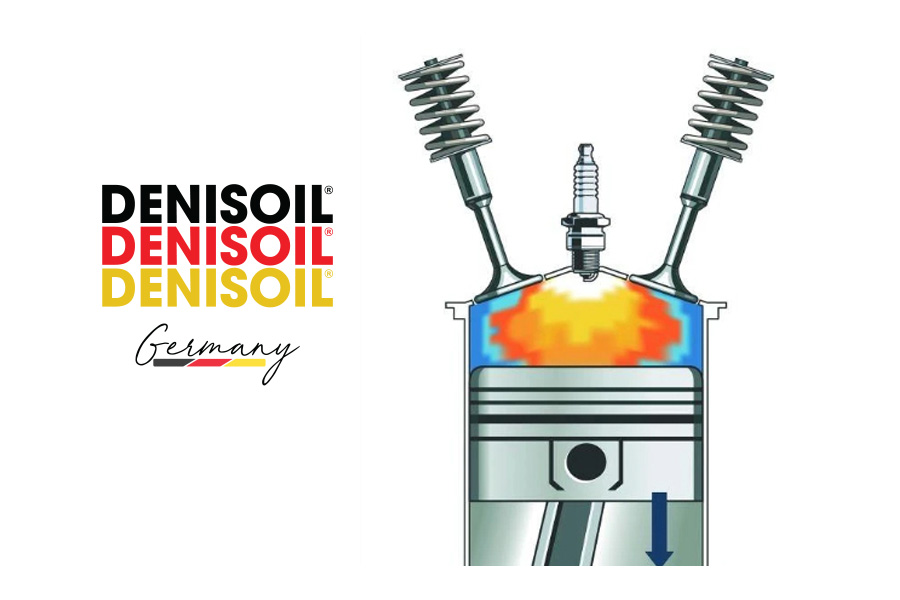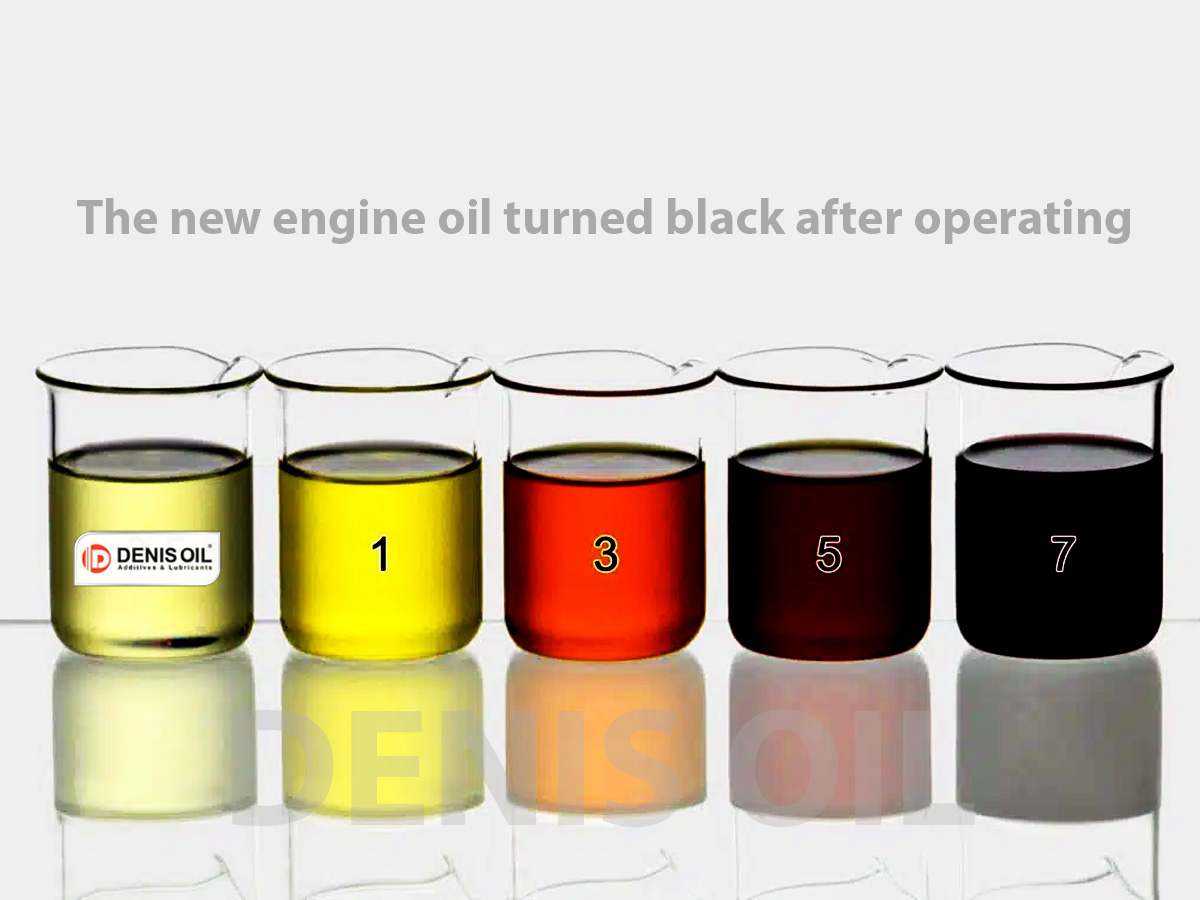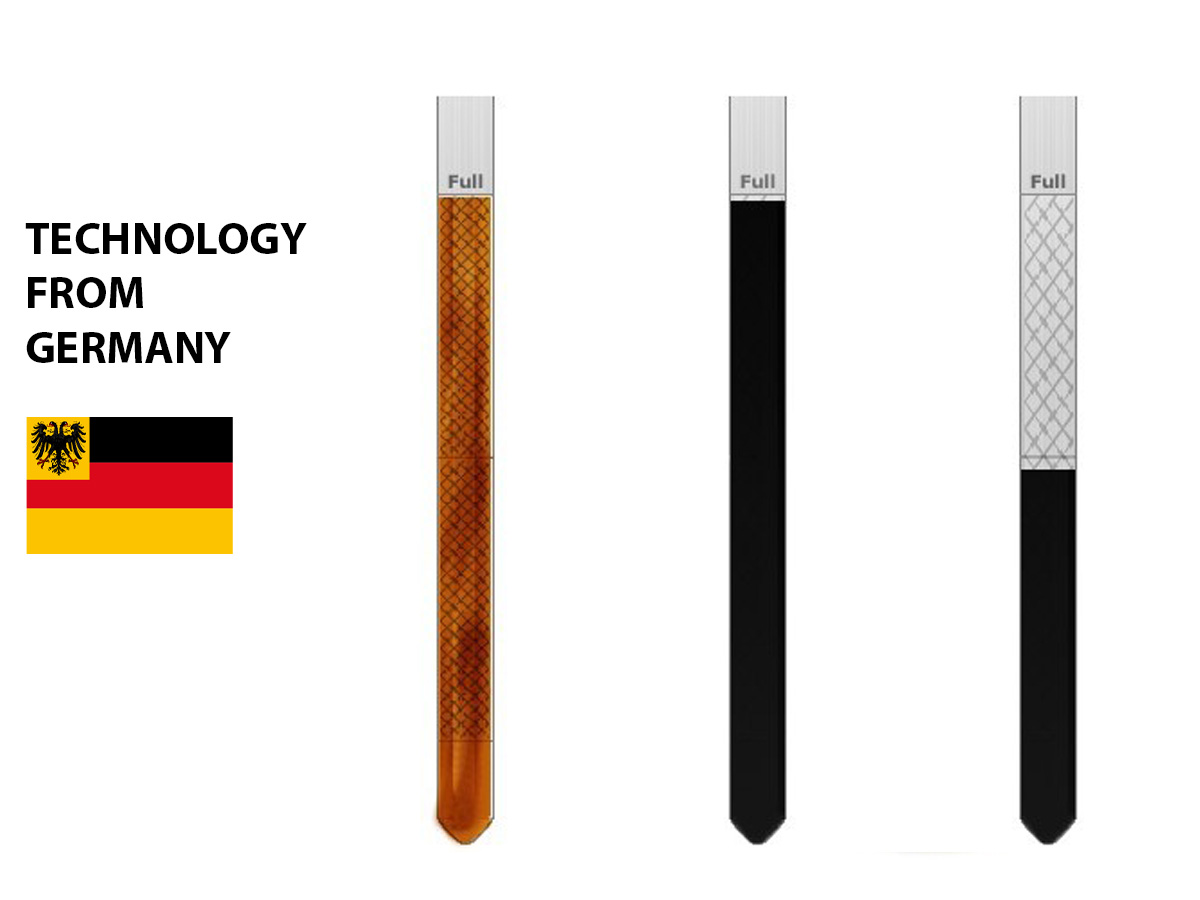What causes engine oil to turn black? And when your oil darkens, does that mean it's time for an oil change? Let’s find out what the reasons are.
Factors That Make Engine Oil Turn Black
Heat Naturally Darkens Engine Oil


During regular vehicle operation, engine temperatures can rise (90°C – 110°C) and cool down when the car is not in use. This fluctuation affects engine oil as well.
When engine oil is exposed to high temperatures, certain additives in the oil can change color, making the oil darker. Additionally, natural oxidation occurs when oxygen molecules interact with oil molecules, leading to chemical breakdown—similar to how iron rusts or fruit darkens when exposed to air. High temperatures accelerate this oxidation process dramatically.
Deposits and Contaminants in Engine Oil
Engine oil contains additives that act as detergents to clean engine parts. Simply put, like a washing machine cleaning dirty clothes, the detergent removes dirt from the engine, and the resulting used oil becomes dirty. That’s why the oil turns black. These are particles such as carbon, dust, and other contaminants that are harmful to the engine. If the oil remains yellow (or still looks like new) after some time, this may indicate the cleaning additives are ineffective or insufficient.
Soot Causes Oil to Blacken

Soot is a by-product of incomplete combustion. While many associate soot with diesel engines, modern gasoline direct-injection engines also produce soot. These soot particles are typically smaller than one micron and usually don’t cause engine wear. However, if the soot aggregates and becomes larger, it may lead to engine wear.
So, Should You Change the Oil When It Turns Black?
As discussed, color change is a natural result of heat and tiny contaminants, too small to cause wear. In fact, dark oil is a good sign that the detergent and dispersant additives are doing their job—keeping the engine clean and carrying dirt to the oil filter.
The only sure way to determine if the oil has reached the end of its life is through an oil analysis. This chemical test shows the oil’s condition, presence of contaminants, fuel dilution, and more. However, this method is expensive and requires expertise.
A more practical solution is to follow the oil change interval recommended by the engine oil manufacturer to ensure optimal engine performance. After all, all this information helps us change oil at the right time—avoiding the waste of discarding oil that may still be performing well, based solely on its color.

Conclusion
At DENIS OIL, we are committed to creating high-quality products tailored for each vehicle type, backed by oil change recommendations analyzed from hundreds of use cases. With advanced technology, DENIS OIL lubricants offer you a smooth and enjoyable driving experience, keeping your engine cool, quiet, and protected throughout your journey.
 Tiếng Việt
Tiếng Việt
 Chinese
Chinese
 English
English











